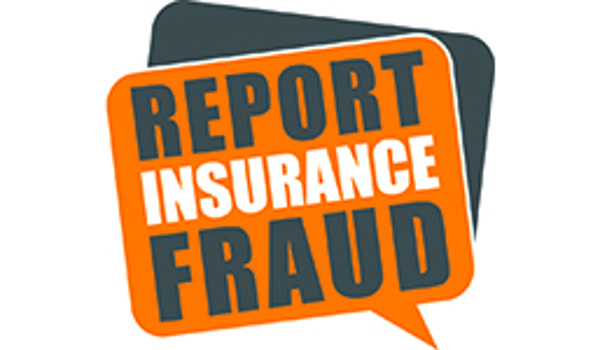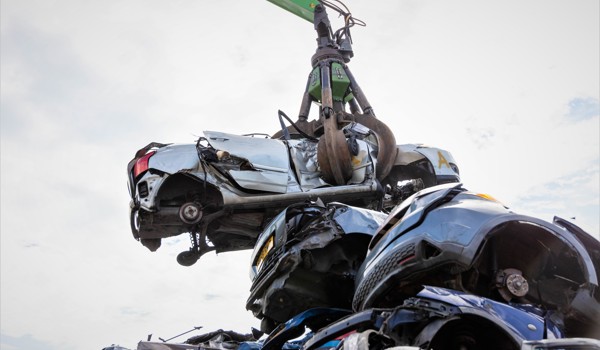From YouTube pranks to mischievous cats - the most bizarre insurance fraud trends revealed

We all try our luck from time to time whether it’s buying a lottery ticket, trying to get an extra discount on a meal out, or asking someone out on a date. With 40% of crime relating to fraud[1], the evidence suggests that insurance fraud is yet another area where people feel they can chance their luck.
The Insurance Fraud Bureau (IFB) is today highlighting the most bizarre lies people have told their insurer when making a claim, all of which have currently landed them on the Insurance Fraud Register (IFR)[2] potentially resulting in a criminal conviction or problems accessing insurance in the future.
Common misconceptions which have led to people currently being on the IFR
Video footage is all the proof I need – even if it’s found online!
YouTube footage of broken items being submitted as evidence as part of a claim is a fairly new trend that’s unlikely to stick. For example, someone claimed their children fell onto their TV and damaged it while arguing over a karaoke mic. It was later found that the evidence of damage included video footage taken from YouTube of a random broken TV screen. Even more extreme was a case where an individual had claimed that someone had thrown a brick through their window breaking their TV and as part of their claim submitted prank images found online.
No one will question my pet
Pets are often used as part of fraudulent claims and blamed for spillages and breakages involving laptops and other tech items. One individual for instance claimed their cat had spilt juice on a MacBook but was then caught out by eagle eyed investigators. We’ve heard about crying over spilled milk, but juice is a new one for us! Perhaps one of the most extreme lies in relation to animals is that one farmer even tried to claim for the death of two of their cows, when only one had died.
A little date change won’t harm anyone
There are countless entries on the IFR where people have changed the date on which an item was damaged or stolen, not realising that if caught they would face tough consequences. These records are often tied to when someone has submitted pictures claiming to be evidence of damage but upon investigation the metadata reveals that the picture was taken after the alleged incident took place.
One person pretended their watch was stolen at knifepoint only for the metadata of the watch photo to confirm it was taken after the incident date. Another person pretended they'd lost their Rolex, but evidence showed it being worn after the supposed incident.
If I take out a policy after the incident has taken place, it still counts
Taking out a policy after the incident and then claiming on it, is fraud. One person took out a home insurance policy the day after their home was robbed and changed the date of their burglary so it appeared insurance was in place at the time of the incident. Another claimed for a missing pet, but social media posts showed the policy was taken out after the pet went missing.
Referencing a foreign country means no one will bother to check
Travel insurance is a classic area where people try to commit fraud. Someone even pretended they were robbed at gunpoint while on a trip to Pakistan and that their iPhone and Chanel handbag were taken. Another individual submitted a claim for medical expenses following a trip to Spain. A boarding pass was provided however it was a fake and the flight was never booked. Another went as far as to provide false documents for a flight that never existed.
The IFB’s 2023 YouGov survey found that one in ten people would be tempted to lie on their claims or application form to save money. Given the growing temptation it is unsurprising that so many try their luck at insurance fraud. The IFB is highlighting the devasting consequences fraud can have and urging people to think twice before lying on their claims form through its latest Fraud Cons campaign. The social media ads are appearing on SnapChat, TikTok, Facebook, Reddit and YouTube.
Ursula Jallow, Director of the IFB, commented:
“Insurance fraud can be seen as a tempting area for people to try their luck, however, there are serious consequences including being placed on the Insurance Fraud Register which could lead to a criminal conviction. It’s really not worth the risk and I hope that our new social media campaign gets people to stop and think before putting in a false insurance claim or application. Fraud puts innocent people at risk and adds costs to everyone else’s insurance premiums, which is why we’re so determined to tackle the issue in collaboration with insurers and the police.”
What are the consequences of opportunistic fraud?
Opportunistic fraud is a term used by the insurance industry to describe everyday people who are not linked to organised crime but spot an opportunity to commit fraud to either save costs on an insurance application or make money on a claim.
If an insurer has clear evidence that someone has deliberately attempted a fraudulent insurance application or claim, the individual can be added to the IFR which is accessed by the wider insurance industry.
Those placed on the IFR can be denied insurance services or if it is offered, it will be significantly more costly due to the associated risk. This can leave people unable to:
- insure a vehicle for third-party cover, which is a legal requirement for motorists.
- get buildings insurance, which is often compulsory for securing a mortgage.
- take out liability insurance, which is required for many business premises.
- have life and death insurance, which can leave loved ones in financial hardship.
- secure contents cover, which can leave a home vulnerable to damage or theft.
[1] Fraud accounts for 40% of all crime in England and Wales according to the UK Government.
[2] Insurance frauds committed between April 2022 – March 2024.


